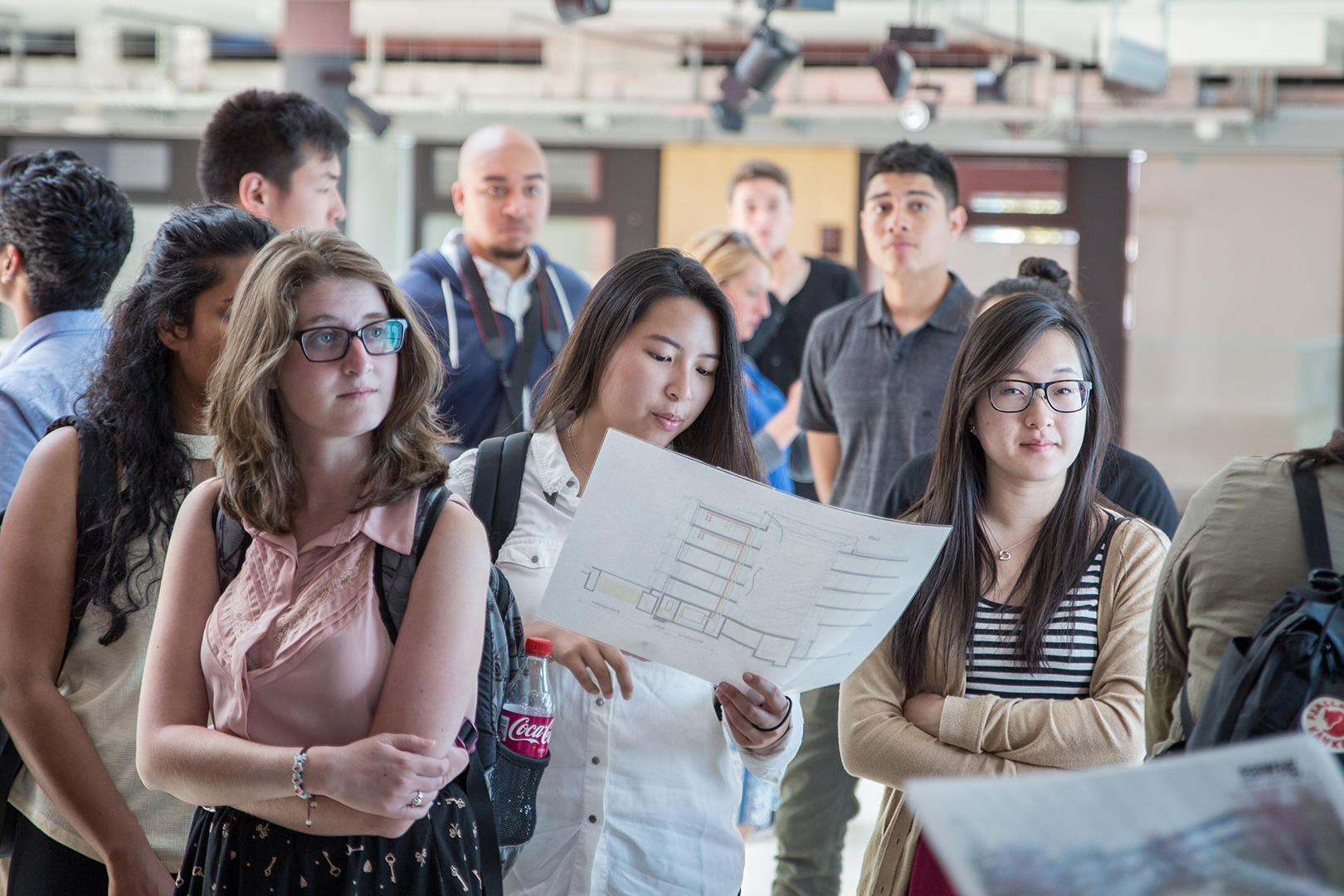Ideally, businesses can be both environmentally mindful and profitable. In Geneva, Switzerland this summer, a group of UC-Berkeley students is learning how.
Some 26 Berkeley students, Haas School of Business majors and otherwise, are participating in a new study-abroad program, Business Innovation for Sustainability, Social Responsibility, and Positive Impact, scheduled to last for five weeks. They arrived at the University of Geneva in late June.
“The idea is that a lot of the work around rethinking the role of business and the impact of business on the environment, it’s not being done by individual firms anymore,” says Haas professor Dave Rochlin, who is leading the program. “A lot of it is being done in public-private partnerships or with increased NGO involvement. Geneva is the center for this activity.”
THE INAUGURAL SUMMER
Rochlin started teaching innovation strategy in 2002, and has been teaching at Haas since 2010. His background is in the social, environmental NGO space, so when the UC system struck up a new relationship with the University of Geneva, he jumped at the opportunity.
“The intersection between business innovation and wider society is growing more critical,” he says. “I thought it would be useful to have a class that explains how business and society concerns are growing intertwined.”
The program includes two Haas classes, completed during students’ five weeks in Geneva. But the classes are a little different from most business lectures. Rochlin makes the most of the location, bringing in speakers frequently and taking the class on day-long trips at least once a week. His goal, he says, is to expose students to the relationship between business and social issues from a variety of standpoints.
GENEVA IS A HUB OF ACTIVITY
This is possible, Rochlin says, because Geneva is a hub of activity in that space. For one, the United Nations is there, and there’s also a huge ecosystem of NGOs and industry-driven efforts concerning things like globalization and climate.
“The students are increasingly interested in understanding how businesses with values can be successful. So this course is a way for them to understand how they can make an impact down the line,” Rochlin says. “They want to measure their success by their positive impact on the world, and many of them are still sorting through what that means.”
To explain how business and environmental values collide, Rochlin says classes talked about palm oil, a key ingredient for many industries. The demand for palm oil has led to a lot of deforestation, he says, but a variety of players are now coming together to talk about how they can source palm oil sustainably. A lot of it has to do with transparency of supply chains, setting reasonable standards, and involving third parties to keep everyone honest, he says.
There’s a lot to learn, but Rochlin says they try not to have students in class for more than four hours a day, and they make a point to have afternoons and evenings free for exploring Geneva.
GENEVA IS AN EYE-OPENING CITY
Program participants Parker Garrett and Suvruta Iruvanti, both rising juniors at Haas, say Geneva is an eye-opening city to live in. Both had travelled internationally before, but both were impressed with Geneva’s environmental initiatives and efficiency. They say the busses run every two minutes, except when it rains — then, perhaps, the wait is a little longer. But it’s still better service than in most cities.
“It’s nice that we’ve had so long to get to know how people in Geneva live,” Iruvanti says. “We’ve all been to the grocery story too many times, and we’re really getting into the swing of things here.”












Questions about this article? Email us or leave a comment below.